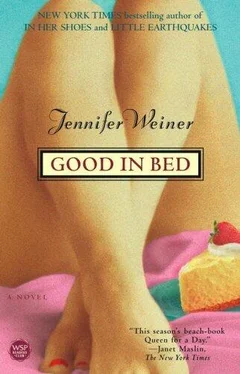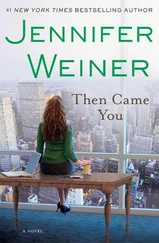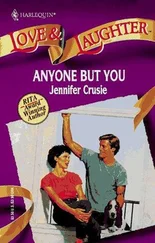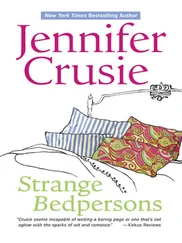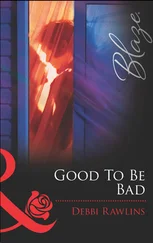I moved on. There I was, standing proudly in front of my first apartment, holding a copy of my first newspaper story, pointing at the headline “Budget Debate Postponed.” Me and my first boyfriend. Me and my college sweetheart. Me and Bruce in the ocean, laughing at the camera, squinting in the sun. Bruce at a Grateful Dead concert, in a hackey-sack circle, one foot extending in mid-kick, a beer in his hand and his hair flowing loose over his shoulders. Then I made myself step back and move on.
I stood and let the ocean cool my feet and felt… nothing. Or maybe it was the end of love that I was feeling, the cool empty place that’s left inside you where all that heat and pain and passion used to be, the slick of wet sand after the tide finally rolls back out.
Okay, I thought. Here you are. You Are Here. And you move forward because that’s the way it works; that’s the only place you can go. You keep going until it stops hurting, or until you find new things to hurt you worse, I guess. And that is the human condition, all of us lurching along in our own private miseries, because that’s the way it is. Because, I guess, God didn’t give us any choice. You grow up, I remembered Abigail telling me. You learn.
Maxi was sitting on the deck where I’d left her, waiting.
“We need to go shopping,” I said.
She rose quickly to her feet. “Where?” she asked. “For what?”
I laughed, and heard the tears inside of it, and wondered if she could hear them, too. “I need to buy myself a wedding ring.”
The receptionist at my father’s office didn’t seem at all perturbed at the long pause before I told her why I was calling.
I had a scar, I finally explained, and I wanted Dr. Shapiro to have a look at it. I gave Maxi’s cell phone number as my own and gave Lois Lane as my name, and the receptionist didn’t sound the least bit curious. She just gave me a ten A.M. appointment for Friday and warned me that the traffic could be brutal.
So on Friday morning I started out early. My hair was freshly trimmed (Garth had obliged, even though it had only been four weeks, not six). And on my left hand I wore not only the plain gold band I’d imagined but a diamond of such breathtaking enormity, such improbable size, that I could barely keep my eyes on the road.
Maxi had brought it home from the set, promising that no one would miss it, and that it would be just the thing to announce to my father in general and the world at large that I’d arrived.
“But let me ask you,” she began that morning, over buttermilk waffles and peach and ginger tea. “Why do you want your father to think you’re married?”
I stood up and opened the curtains, looking out at the water. “I don’t know, really. I don’t even know if I’ll wear the rings when I go see him.”
“You must have thought about it,” said Maxi. “You think about everything.”
I looked at the rings on my fingers. “I guess it’s that he said nobody would ever love me, that nobody would ever want me. And I feel like if I see him, and I’m pregnant and I’m not married… it’ll be like he was right.”
Maxi looked at me as if this were the saddest thing she’d ever heard. “But you know that’s not true, right?” she asked. “You know how many people love you.”
I drew a shaky breath. “Oh, sure,” I said. “It’s just… with this… it’s hard to be reasonable.” I looked at her. “It’s family, you know? Who was ever reasonable about family? I just… I want to know why he did what he did. I want to at least be able to ask the question.”
“He might not have answers,” Maxi told me. “Or, if he does, they might not be the ones you want to hear.”
“I just want to hear something,” I said raggedly. “I just feel like… I mean, you only get two parents, and my mom’s…” I gave a vague, general wave of my hand to indicate lesbianism and an inappropriate life partner. My finger flashed in the sunlight. “I just feel like I have to try.”
The nurse who led me into the cubicle had breasts as symmetrical and rounded as twin halved cantaloupes. She handed me a plush terrycloth robe and a clipboard full of forms to fill out. “Doctor will be with you shortly,” she said, clicking on a high-powered light and shining it on my face, where I’d invented a scar. “Huh,” she said, scrutinizing the scar. “That hardly looks like anything.”
“It’s deep, though,” I said. “I can see it in pictures. It shows up there.”
She nodded as if this made perfect sense to her and backed out of the room.
I sat on a beige armchair, making up lies to put on the forms and wishing that I had a scar – some physical sign to show the world – to show him – what I’d been through, and what I’d survived. Twenty minutes later, there was a brisk knock at the door, and my father walked in.
“So what brings you here today, Ms. Lane?” he asked, his eyes on my chart. I sat quietly, saying nothing. After a moment, he looked up. There was an irritated expression on his face, a stop-wasting-my-time look that I recognized from my childhood. He stared at me for a minute with nothing registering on his face but more annoyance. Then he saw.
“Cannie?”
I nodded. “Hello.”
“My God, what…” My father, a man with an insult for every occasion, was for once gratifyingly speechless. “What are you doing here?”
“I made an appointment,” I said.
He winced, took off his glasses, and pinched the bridge of his nose – another pose I’d remembered well. It usually presaged a temper tantrum, anger of some sort.
“You just disappeared,” I said. He started shaking his head and opened his mouth, but I wasn’t about to let him start without saying my piece. “None of us knew where you were. How could you do that? How could you just walk out on all of us like that?” He said nothing… just stared at me – through me – as if I were any hysterical patient, shrieking that her thighs still felt lumpy or her left nipple was higher than her right one. “Don’t you care about us? Don’t you have a heart? Or is that a stupid question to ask someone who sucks cellulite out of thighs for a living?”
My father glared at me. “You don’t need to be condescending.”
“No, what I needed was a father,” I said. I hadn’t realized how angry, how furious at him I was until I’d seen him, standing there in his crisp white doctor’s coat, his manicured fingernails, his tan, and his heavy gold watch.
He sighed, as if the conversation bored him; as if I bored him, too. “Why are you here?”
“I didn’t come here looking for you, if that’s what you’re asking. A friend of mine had an appointment, and I came with her. I saw your picture,” I continued. “Not very smart, you know? For someone trying to stay undercover”
“I’m not trying to stay undercover,” he said irascibly. “That’s nonsense. Did your mother tell you that?”
“Then how come none of us know where you are?”
“You wouldn’t have cared if you did,” he muttered, picking up the clipboard he’d come in with.
I was so flabbergasted, he actually had his hand on the doorknob before I could think of what to say. “Are you crazy? Of course we would have cared. You’re our father”
He put his glasses back on. I could see his eyes behind them, a weak, watery brown. “And you’re all grown up now. All of you are.”
“You think just because we’re older it doesn’t matter what you did to us? You think needing your parents in your life is something you outgrow, like training wheels or a high chair?”
He raised himself up to his full five feet, eight and a half inches, and gathered the cloak of authority, of Doctor-ness, around him as palpably as if he’d been pulling on a heavy winter coat. “I think,” he said, speaking slowly and precisely, “that lots of people are disappointed by the lives that they wind up with.”
Читать дальше
